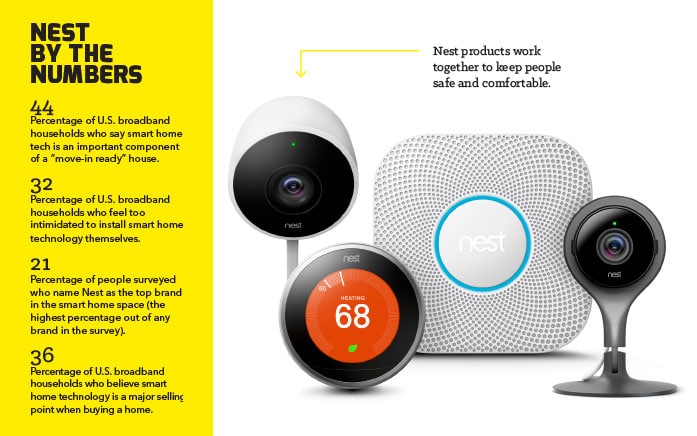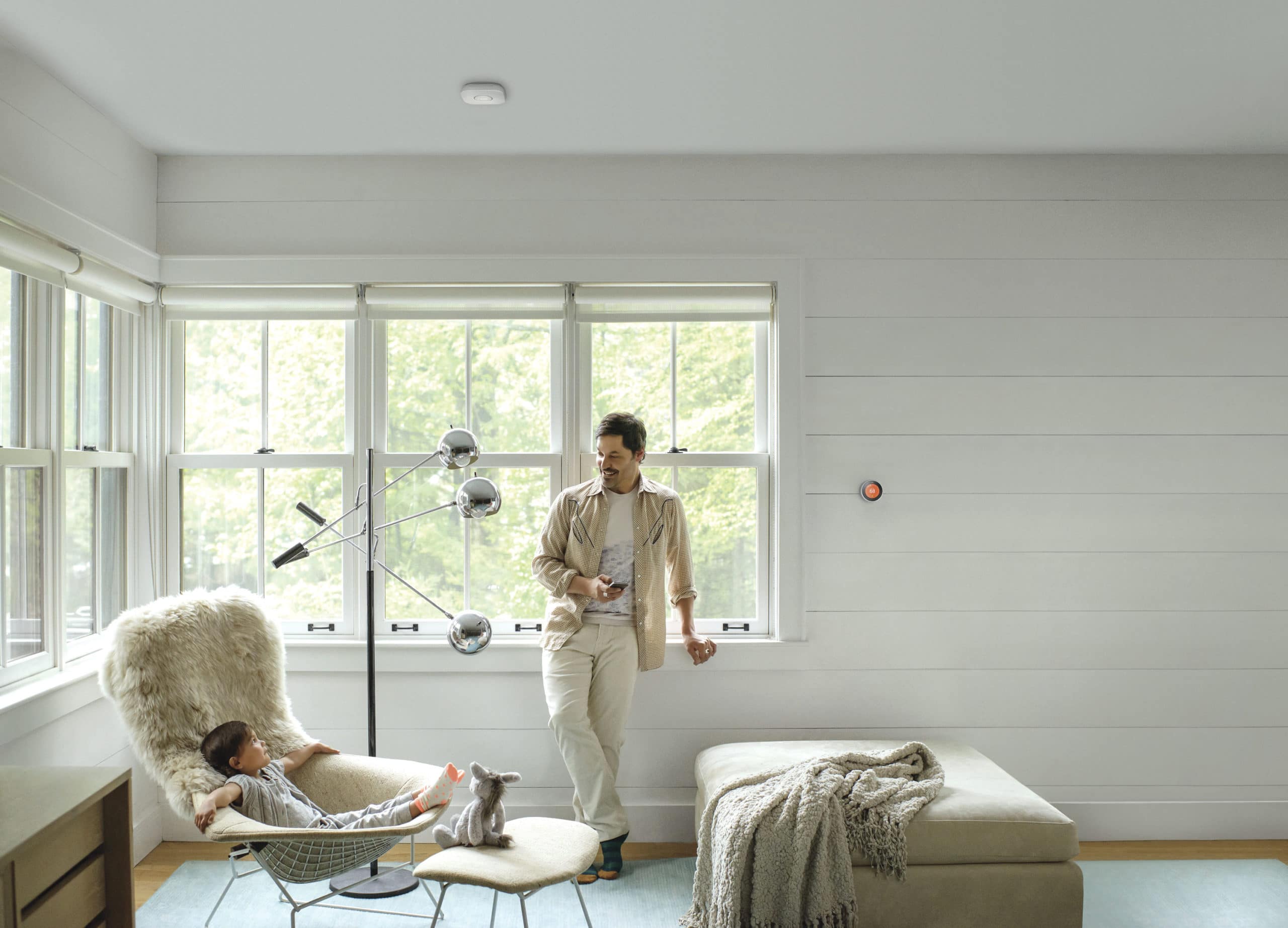Nest Pro offers businesses a simpleentry into the smart home market
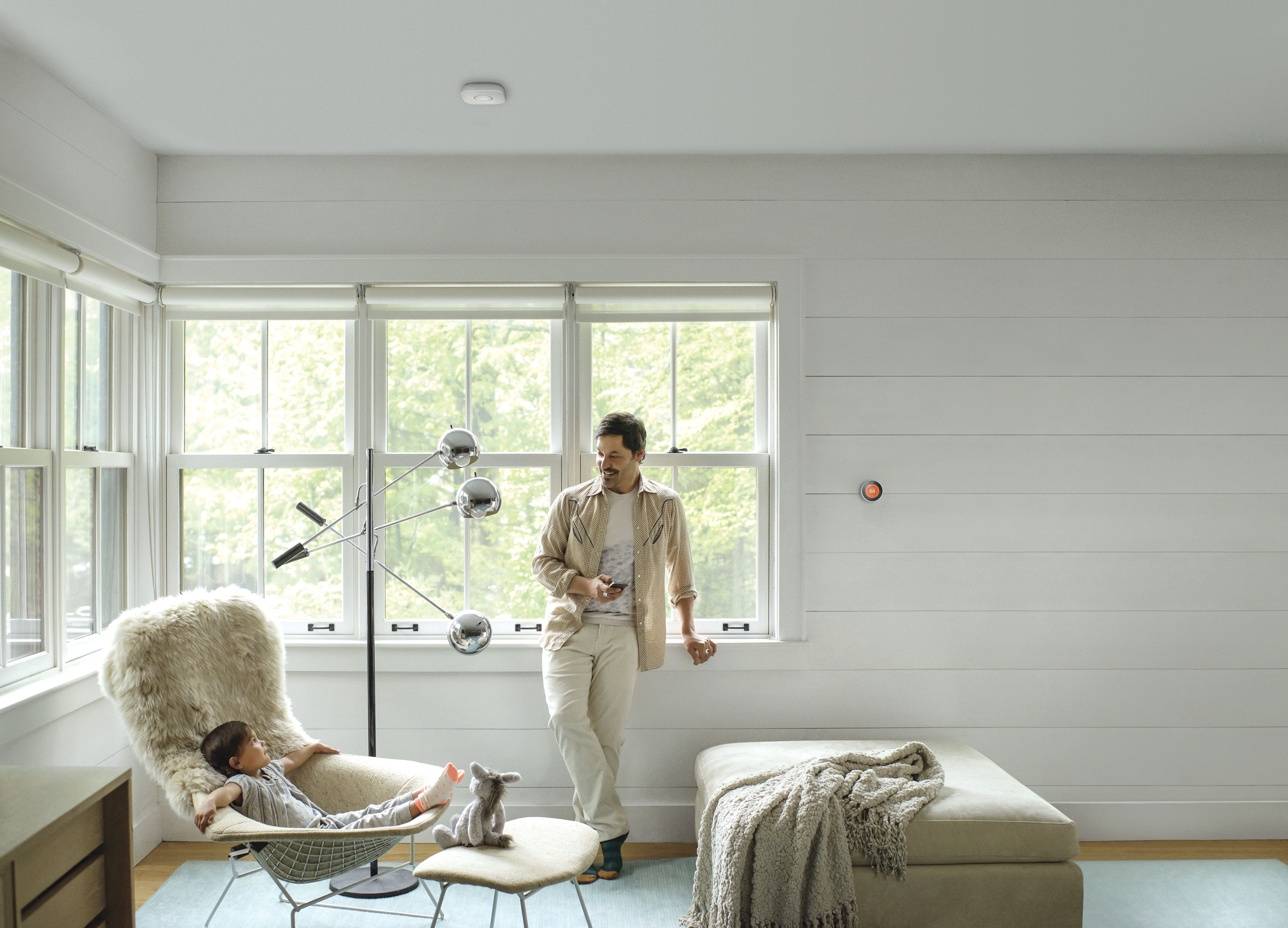
[Photo: Courtesy of Nest]
FROM OUR JULY+AUGUST 2017 ISSUE
The preferred publication of leading green professionals.
 Download a PDF of this story.
Download a PDF of this story.
To learn more, visit Nest Pro.
Now more than ever, improvements to heating, cooling, security, and so much more inside our homes are at our fingertips. The demand for smart home solutions—and the experts who install them—is soaring. By becoming a Nest Pro, industry professionals can diversify and expand their offerings, ultimately reaping the rewards of the smart home.
For Gene LaNois, head of Nest Pro, it’s easy to see that smart home solutions are becoming the norm, and getting in on the ground floor will pay dividends for companies down the line. “It’s a great time to get into an area with so much growth in it,” he says. “It’s a new trade that’s being started.” Whether you face competition from local businesses or big franchises, expanding your offerings into an area people want—smart homes—helps you stay relevant.
But what is Nest Pro, exactly? It’s Nest Labs’ program that enables HVAC or home automation professionals to install Nest’s roster of smart home products with special support and training from Nest. Nest Pros can install products like the Nest Learning Thermostat, Nest Cam Indoor and Outdoor security cameras, and Nest Protect smoke and carbon monoxide (CO) alarm. Nest’s simple but intelligent products have made it a leader in the smart home market.
The Demand
Becoming a Nest Pro is easy and free, LaNois says. You simply visit the Nest Pro website (pro.nest.com), sign up, and provide details about your business. Applicants can be approved in as little as 24 hours. Once training is complete, Nest Pros can install any of Nest’s products. From there, Nest Pros can find new customers and establish a foothold in the smart home market. Becoming a Nest Pro also provides you with leads. When a homeowner’s furnace breaks, who are they going to call? It’ll likely be the nice individual who installed their thermostat who can also do so much more.
The market continues to experience a burst of visibility and recognition—born from the increase in those entering the industry as well as the increase in space afforded to smart home products by big-box retailers. The runaway success of Google Home—which is compatible with the Nest Thermostat—has also brought increased awareness to the industry.
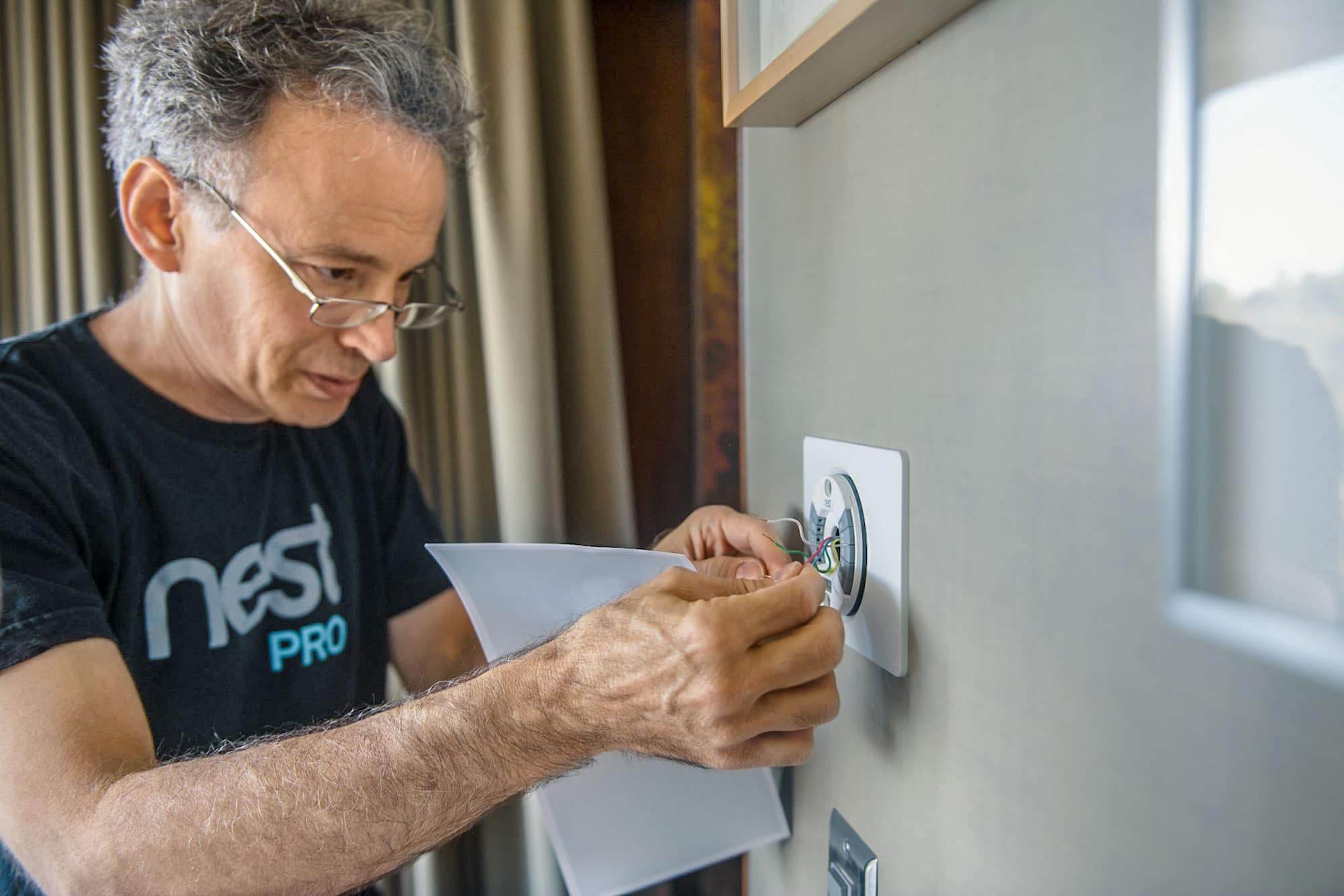
[Photo: Courtesy of Nest]
The Works With Nest program, which encompasses more than 130 products that are compatible with Nest products, represents one of the most intriguing features and reflects the promise of smart home products. If, for example, a Nest Thermostat owner who also owns a Google Home happened to be lying in bed and felt a little chilly, they could ask Google Home to turn up the heat without moving. This kind of responsive design is increasingly what consumers expect out of homes, and Nest is at the forefront of providing it.
In fact, according to a Coldwell Banker survey, 44% of Americans say smart home technology is a must when moving into a new home. According to the same study, one out of three people who desire smart home tech also feel intimidated about installing these products themselves. It’s a discrepancy that presents one of many opportunities for Nest Pros to create business.
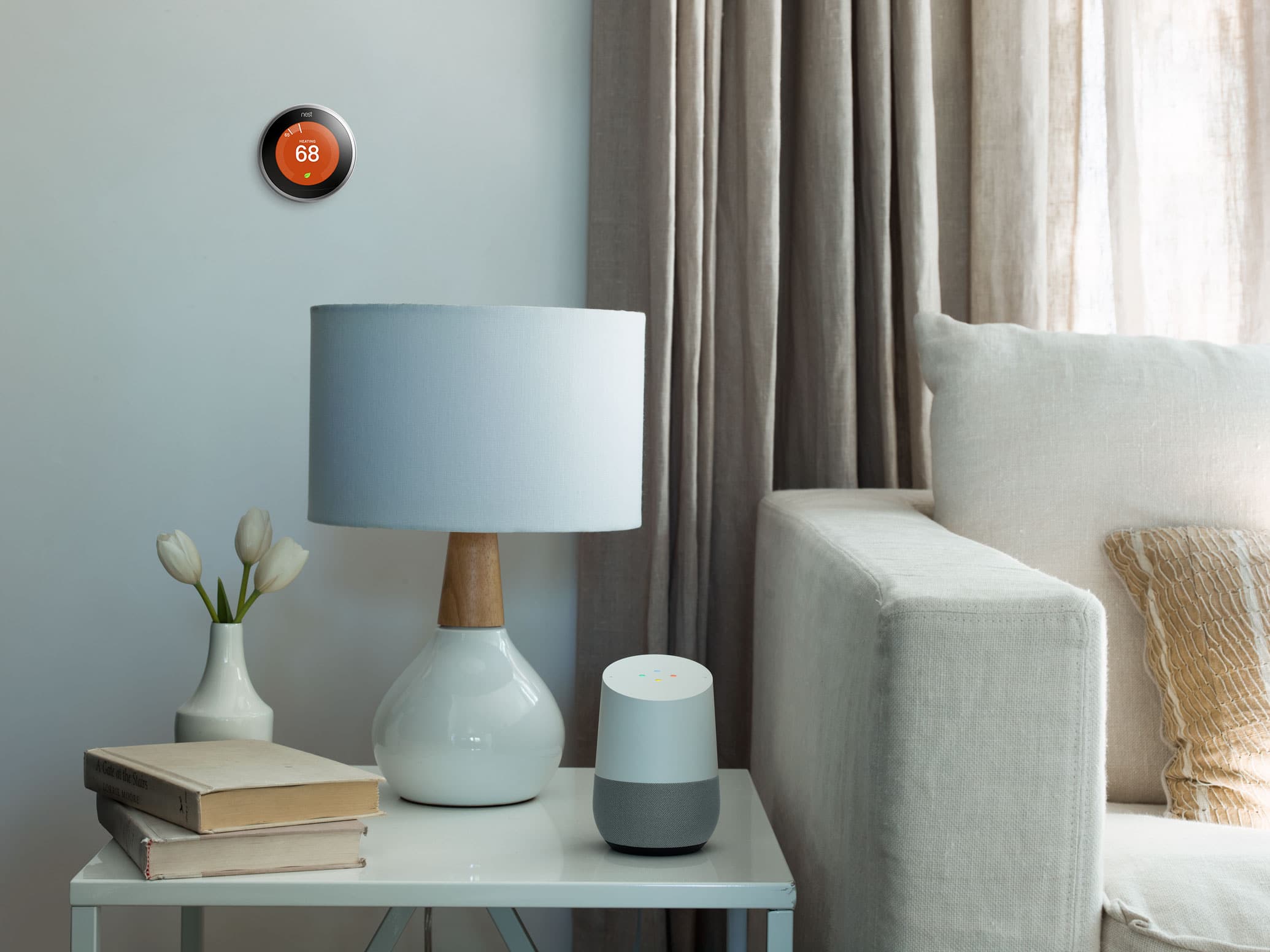
[Photo: Courtesy of Nest]
The Brand
Within the smart home space, Nest—thanks in part to its establishment as a pioneer in the early days of the industry—draws some of the highest name recognition of any company. Mike Soucie, from Nest’s product marketing team, pointed to a survey conducted by Kelton Research that showed 21% of consumers named Nest as the top brand in the smart home industry.
In addition to Nest’s early success with the smart home, Soucie attributed some of its prominent name recognition to a reputation for well-crafted, visually appealing products. Soucie adds that Nest also aims to take a more thoughtful, people-centric approach to design. “Nest products make connections between different parts of people’s lives to create personalized experiences that do even more to keep them comfortable, secure, safe, and help them save energy.”
“It’s a great time to get into an area with so much growth in it. It’s a new trade that’s being started.”
Gene LaNois, head of Nest Pro
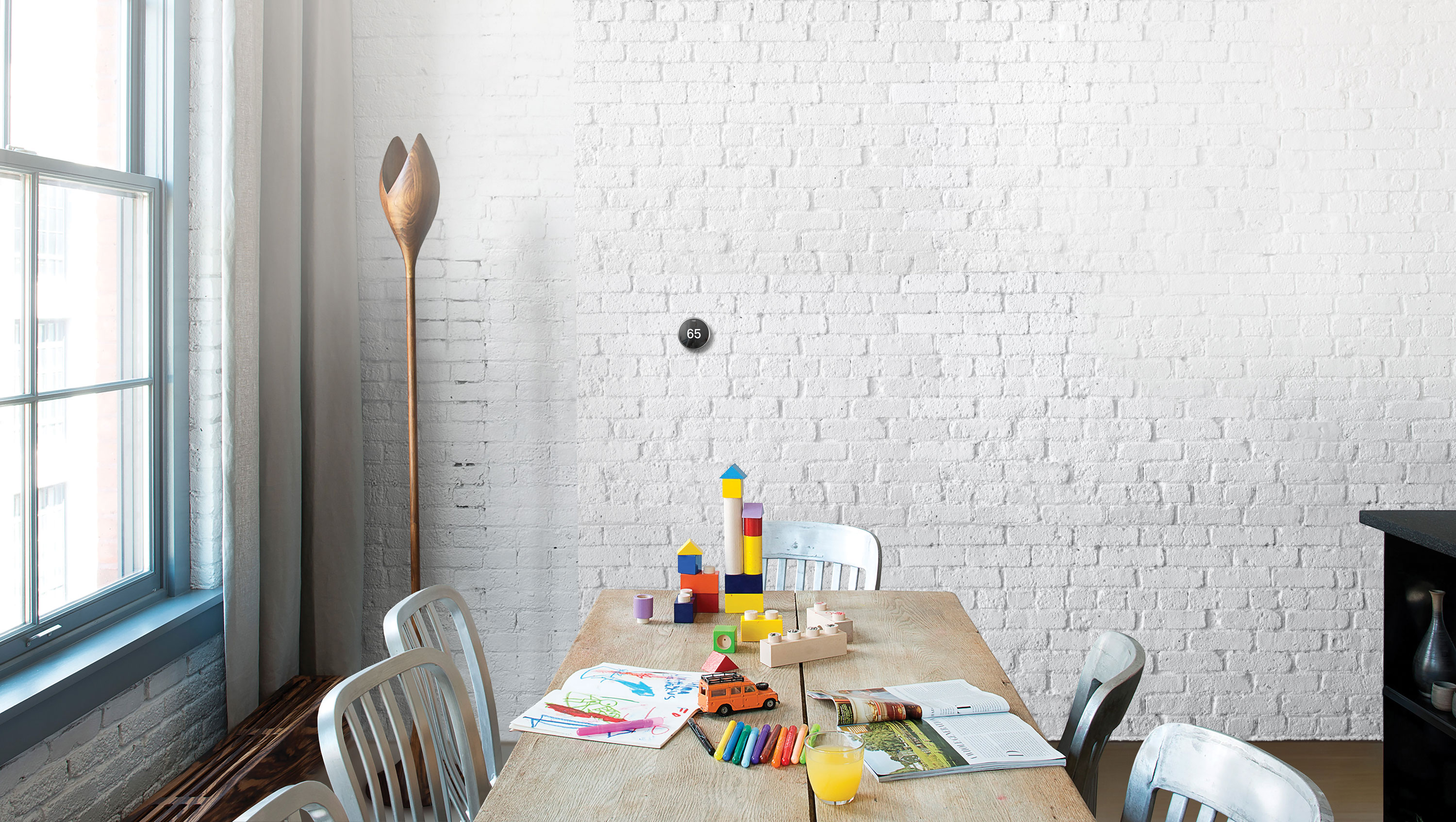
[Photo: Courtesy of Nest]
Bright Future
Moreover, becoming a Nest Pro allows businesses to associate themselves with the Nest brand, LaNois says. For example, after successfully installing a Nest Thermostat, a homeowner, having been convinced of the Nest Pro’s expertise, may continue to seek out that same Nest Pro to install additional Nest products, like one of their smart security cameras.
“Our buyers are trying to invest in their homes,” LaNois says. This works to the advantage of prospective Nest Pros, who can find a reliable new source of business after installing their first smart home product. Additionally, as the number of smart home products in one household increases (we all know those people with lots of gadgets), the installation process can become more complicated, and more suited to a professional.
Thoughtful touches make Nest more personalized than your average gadget. For example, working in tandem with a Nest Cam, Philips Hue light bulbs can automatically switch on after the camera detects movement, with the aim of scaring off potential intruders and helping to keep you and your family safe. For Soucie, the goal with Nest is to create “products that learn and anticipate your needs, get better over time, and can think for themselves to take meaningful action on your behalf.”
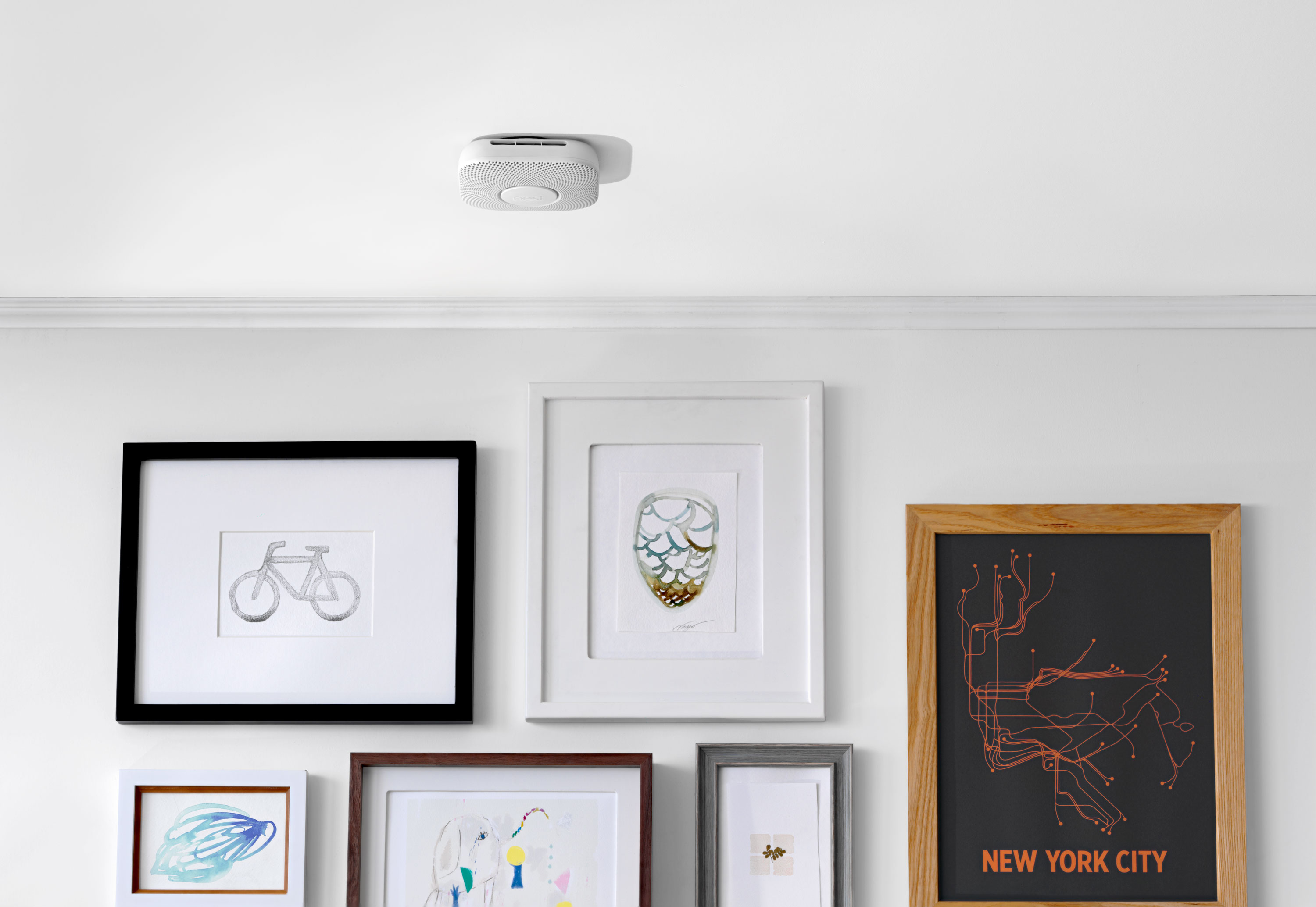
[Photo: Courtesy of Nest]
Return on Investment
Nest’s array of benefits also helps to neutralize the relatively high cost of some of their devices. While a Nest Thermostat generally costs $249, LaNois says it can pay for itself with savings on electricity bills within two years.*
When it comes to the advantages of being a Nest Pro, they’re as attainable for independent contractors as they are for larger businesses. “There are no new tools you need,” LaNois says.
Once a business or contractor becomes a Nest Pro, LaNois says the biggest challenge is simply staying abreast of all the developments in the rapidly changing and expanding market. It’s a good problem to have—one that presents opportunities for growth for new Nest Pros as it helps them learn their new trade. Ultimately, he sees the smart trade shaking up how we conceive of trades altogether. “By becoming a Nest Pro, you’re able to appeal to a whole new group of customers and establish yourself as a valuable consultant.”
Learn more about Nest Pro and see related articles on smart technology.
